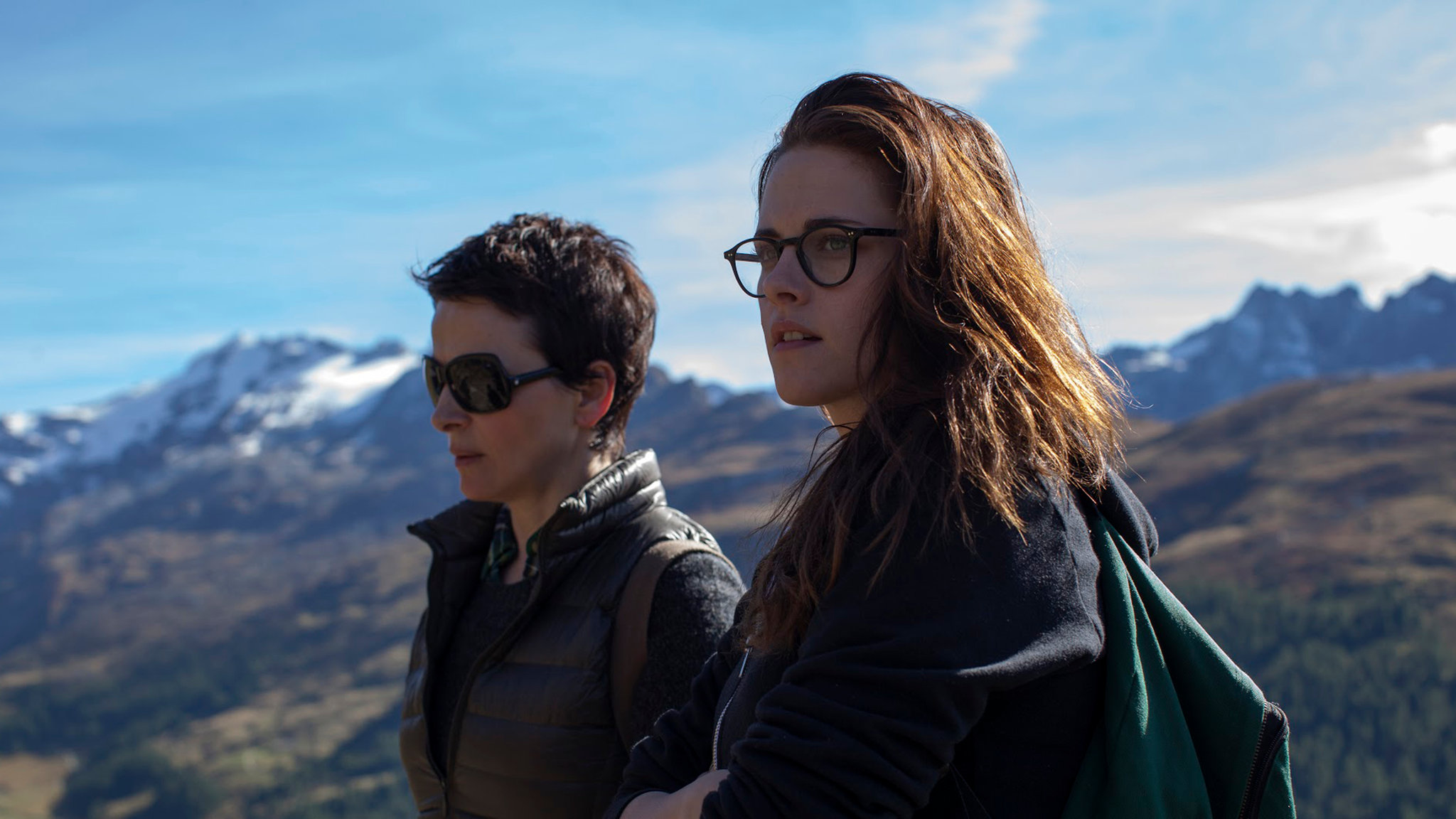By Chlotrudis Independent Film Society
Director: Olivier Assayas

Country: france, germany, switzerland
Year: 2015
Running time: 124
IMDB: https://www.imdb.com/title/tt2452254/reference
Brett says: “It is evident by the first quarter of the film that CLOUDS OF SILS MARIA is intended for a specific audience. That fact becomes even more evident as the nowhere loops of dialogue progress (or rather, stand still) all the way to the end where solace and completion are finally realized and attained. While not overtly revealed as such, this target audience is film-goers who revel in the lives of ‘serious actors’ and think they have some insight into a profession they’ve never experienced firsthand. The entire team of this film takes advantage of festival-frolickers for which is was obviously intended during its world tour of art houses.
“The film features a two-front doppelgänger type of approach that might bring back visions of the masterpiece that is PERSONA. However, that does not work to benefit this film at all, but only to contrast how brilliant one is over the other.
“To be fair, the film is carefully shot, and the backdrop against which the story of an attempted renewal of an aging actress is set is a nice antithesis to the modern youth culture of gadgets, social consciousness, and global connectivity at every turn. The film does have a point that it’s reaching for; there is no mistaking that. The problem is in its tendency to get so hung up in lofty discussions about character and relationships and what is ‘real’ on stage and screen. The exchanges could not be any further from the ‘realness’ the characters speak in circles about. What’s more, the multiple instances that the word ‘conventional’ is condescendingly used in character dialogue only serves to conjure a facepalm from anyone keen to the film’s ineffective attempts at manipulating viewers into buying any of its own dialogues.
“The method used in presenting information in order to trigger a sense of metacognition for audience members is rather insulting at times. The ‘meta-moments’ that director Olivier Assayas is striving for are force-fed as if the director doesn’t trust his audience to have its own internalized discussions along with the film. As a result, the idea of any metacognition is basically amputated for viewers. The ensuing character interactions are thusly counterintuitive to actual character insights, relationship building, and any attempts at ‘truth.’ All one needs to know is what is thrown in his/her lap by the film. Yes, there are would-be references to Hollywood and the age of silent film and even theatre itself. But the attempts are lacking the same self-awareness that this film itself could equally be ridiculed for.
“At times, one must look at a program to make sure that this is, in fact, a Juliette Binoche film and not Julie Delphy. But not so fast. The famous Delphy-Hawke-Linklater trilogy benefits from the fact that the performers were contributing writers. Here, it is clear that not even a series of edits and scene cuts between exchanges of dialogue can save this from being likened to everything that bad mumblecore is criticized for. Characters go on and on with analyses of stage and screen and Hollywood, yet only serve to talk themselves into a coil in the name of ‘deep discussion.’ The result is not ‘truth’ at all; it’s a faux preservation of the elite status film-goers grant actors that they love.
“Finally, there is no question that the film plays into notions already established about Binoche and Stewart in their respective roles. Unfortunately, it serves only to add another bag of cement for the oft-noted observations about Stewart’s limited range and cookie cutter persona she puts on display. Yes, the dialogue is different, but one cannot separate the character from the actor: a reality that only works against Stewart and–by association–Binoche in this case. It is clear who the more seasoned performer is; nevertheless, the fact that Binoche is saddled with being an aged version of the former self she sees in Stewart’s character Valentine does not do her any favors.”
Peter says: “I have to agree with both Tom and Kyle. I discerned nothing pseudo intellectual about THE CLOUDS OF SILS MARIA. Not to be too critical, but I thought a few of the previous reviewers on this thread were. The film had a literate and multi-layered script with compelling performances. I would agree that Clouds is not a mainstream film, nor was it intended for the average movie-goer, which is fine by me. I’d definitely rate it 5 cats”
